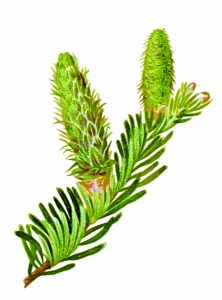
If you live with seasonal allergies and feel like pollen lingers longer and longer every year, you may be right. New research shows that pollen seasons now start about 20 days earlier, are 10 days longer, and feature 21 percent more pollen than in 1990—which means more days of itchy, sneezy, drippy misery.
Led by William Anderegg, an assistant professor of biology at the U, researchers found that human-caused climate change has played a significant role in pollen season lengthening and a partial role in pollen amount increasing. “The strong link between warmer weather and pollen seasons provides a crystal-clear example of how climate change is already affecting people’s health across the U.S.,” says Anderegg.
Allergies to airborne pollen can be more than just a seasonal nuisance to many. Allergies are tied to respiratory health, with implications for viral infections, emergency room visits, and even children’s school performance. More pollen hanging around for a longer season makes those impacts worse.
The team compiled measurements between 1990 and 2018 from 60 National Allergy Bureau pollen count stations across the United States and Canada. These stations collect airborne pollen and mold samples, which are then hand-tabulated by certified counters.
Nationwide pollen amounts increased by around 21 percent over the study period. Pollen seasons by the end started nearly three weeks earlier than about 40 years ago, suggesting that warming is causing the plants’ internal timing to start producing pollen earlier in the year.
But can we say that the changes in pollen are a result of climate change? The researchers answered that question by applying statistical methods to pollen trends in conjunction with nearly two dozen climate models. The results showed that climate change alone could account for around 50 percent of the pollen season lengthening and around 8 percent of the pollen amount increasing. The researchers also found that the contribution of climate change to increasing pollen amounts is accelerating.
“Climate change isn’t something far away and in the future. It’s already here in every spring breath we take and increasing human misery,” says Anderegg. “The biggest question is—are we up to the challenge of tackling it?”



Comments
Comments are moderated, so there may be a slight delay. Those that are off-topic or deemed inappropriate may not be posted. Your email address will not be published. Required fields are marked with an asterisk (*).